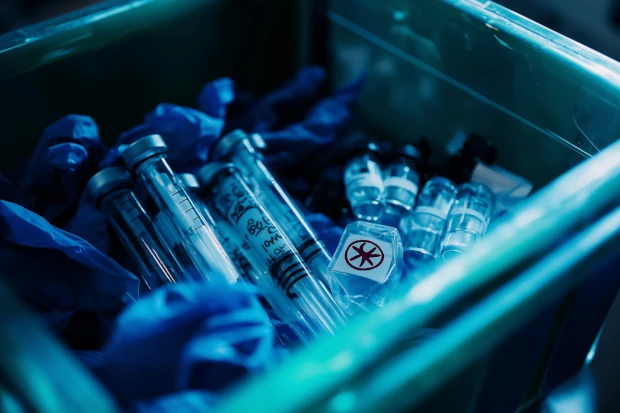 According to waste specialist journalist Salman Zafar, UAE’s hospitals and other medical facilities produce around 21.5 tons of medical waste every day. A significant portion of this is classified as biomedical waste and requires specialist handling and disposal to avoid the risk of infection and other threats to public and environmental health.
According to waste specialist journalist Salman Zafar, UAE’s hospitals and other medical facilities produce around 21.5 tons of medical waste every day. A significant portion of this is classified as biomedical waste and requires specialist handling and disposal to avoid the risk of infection and other threats to public and environmental health.
What is Biomedical Waste?
The strictest definition of biomedical waste is waste material that poses a risk of infection to humans. This could include gloves, gauze, or any other material used in medical treatment that may have been infected. It also includes any pathological waste such as tissue or organs removed during treatment, plus any used needles, scalpels, or other surgical and medical equipment.
A wider definition incorporates other medical waste that could be harmful, for example, leftover laboratory chemicals or expired medications.
A common estimate is that between 15 and 25 percent of all healthcare waste counts as biomedical waste for disposal and handling purposes.
Why Does Biomedical Waste Need Special Handling?
The risk to humans from biomedical waste means it can’t be treated in the same way as other waste material. This includes the risk of transmitting infections or blood-borne infections. Biomedical waste can also pose an environmental threat if not handled correctly.
Compared with ordinary waste handling, biomedical waste disposal requires specially trained personnel and additional protective measures such as labelling and containment during transport. The final disposal method will vary depending on the nature of the risk but could include chemical treatment or incineration.
Because of the risks, most jurisdictions have specific legal requirements for handling and disposing of biomedical waste.
What Rules Apply to Biomedical Waste in the UAE?
Biomedical waste handling comes under two key authorities in the UAE. The Ministry of Climate Change and Environment regulates general waste management, while the Dubai Municipality has dedicated guidelines for medical waste disposal.
The rules cover three main principles:
- Biomedical waste should be separated at source, with each category of waste (such as infectious, sharps, and chemical) segregated throughout the disposal process.
- Biomedical waste must be transported in a secure vehicle that is protected against leakage.
- Biomedical waste must be treated and disposed of using treatments appropriate to the specific risk. This can include autoclaving, a process which uses pressurised steam to kill bacteria and viruses.
Imdaad’s Biomedical Waste Handling Expertise
Imdaad is one of the UAE’s leading specialists in biomedical waste management, with the capacity and flexibility to offer specific procedures or handle the entire process.
the company uses custom-designed containers, bins, and bags for biomedical waste and can also supply this equipment for healthcare facilities that have their own handling programs. Imdaad also maintains a dedicated fleet of vehicles that are designed and built for safe biomedical waste transport.
Imdaad also employs specialist staff with professional training and experience in the safe handling of biomedical waste, using the appropriate PPE (personal protective equipment), and safely and promptly reacting to any emergencies such as spillage.
To put things into context, Imdaad collects more than 25,000 tonnes of biomedical waste each month. It’s part of a much wider waste management service that’s operated with a commitment to sustainability.
Biomedical waste handling is a specialist area that’s not always well understood but is vital to both healthcare businesses and the wider society and environment. It’s not a task suited to generalists without specialist expertise.
Contact Imdaad today to learn more about how we can take care of your biomedical waste headaches.
Back to list
